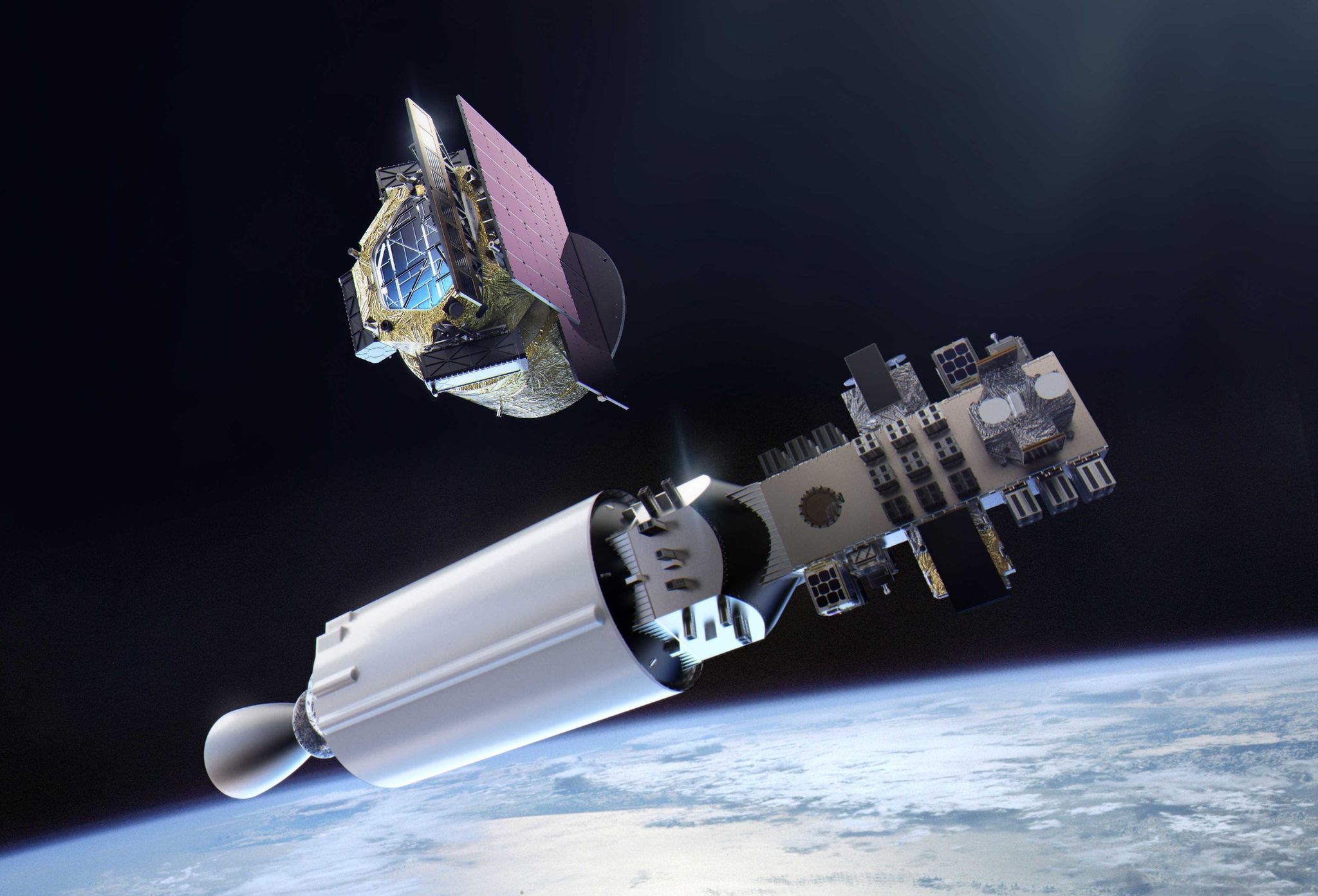Sydney’s Space Machines Company has launched a trailblazing satellite to clean up space junk.
Australia’s largest ever spacecraft blasted successfully into orbit in March 2024. The Optimus satellite – built by Space Machines Company – is a 270-kilogram servicing vehicle. Designed and built in Australia, it will help transform the satellite industry. It can monitor and repair ageing satellites and decommission old ones. It also carries payloads from Australia’s space-tech pioneers. These include modules for spectral imaging, domain awareness and space-based artificial intelligence.
Australia’s space industry takes a giant leap forward
Space Machines Company was founded in 2019. Based at the Tech Lab at the University of Technology Sydney (UTS), the company has around 50 employees, including offices in Adelaide and Bangalore.
The company’s core mission is to make space more sustainable.
‘By 2030, there will be 70,000 satellites at risk of becoming space junk,’ says Sharmila Fernando, Head of Marketing, Space Machines Company. ‘Our spacecraft can refuel, repair, reuse and deorbit old satellites. Our mission at Space Machines Company will be to provide a satellite roadside assistance network to fix failures in orbit.’
The company’s first satellite – Optimus – is an orbital servicing vehicle. Its function is to monitor and maintain other satellites.
According to Fernando, the ability to service satellites is a revolution in the space industry.
‘Optimus is the first Australian commercial satellite equipped to deliver life-extension services,’ she says. ‘It can conduct inspections and deliver on-orbit assistance to existing space infrastructure and satellites.
‘Space Machines Company is very proud of what we’ve achieved. Optimus marks the dawn of a new age in space sustainability for Australia.’
Successful satellite launch on SpaceX rocket
The Optimus satellite was launched from the Vandenberg Space Force Base in California. It was carried a SpaceX Falcon 9 rocket, with 53 other spacecraft.
The Optimus OSV will first manoeuvre into its orbital slot. Then it will commence a testing program for each of its payloads.
The CEO of Space Machines Company, Rajat Kulshrestha, predicts the OSV could transform the economics of space infrastructure.
‘The successful launch of Optimus opens up new possibilities for how satellites are launched and operated,’ he says. ‘Optimus enables us to provide services to extend satellite lifetimes … and sustainably scale space activities.’

Space Machines Company’s Optimus orbital servicing vehicle.
A team effort from Australia’s space startups
The satellite is a trailblazer for Australia’s space industry. It carries unique, home-grown technologies. According to Space Machines Company, 60% of the satellite’s supply chain originates in Australia.
For example, Victoria-based Esper created the hyperspectral camera for collecting images, including heatmaps. Sydney’s Spiral Blue uses edge computing to images in space. HEO created a space domain awareness camera to monitor objects in space.
Meanwhile, UTS’ Tech Lab produced the gimbal, which delivers positioning information.
‘Optimus is about Australian technology and payloads,’ says Fernando. ‘We have incredible talent and technology. Many of our partners are Australian startups. We’ve given them the ability to gain space heritage.
‘This launch is not just a win for us. It’s a win for Australia’s amazing space ecosystem.’
Australian space science hitches a lift
The satellite is also a testbed for emerging technologies.
Australia’s lead science agency, the Commonwealth Scientific and Industrial Research Organisation (CSIRO), has developed a new type of printed solar cell. It could provide a lightweight source of energy for space operations. CSIRO is trialling the printed cell aboard Optimus.
‘If the space flight test reveals similar performance as we’ve shown in the lab, this technology offers significant advantages over traditional silicon-based solar,’ says CSIRO space program director, Kimberley Clayfield.
How Austrade helped
Austrade has helped Space Machines Company in its global mission to deliver space-based satellite servicing.
Advisers facilitated business connections for company executives at global space conventions. This included at the Australian Pavilion at trade shows.
‘Austrade assisted our delegation to the International Astronautical Congress 2022 in Paris,’ says Fernando. ‘Their space specialists also supported us at the Australia-Korea Space Workshop and the Space Symposium in Colorado, in the US.
‘Austrade has expertise in the space industry – and excellent connections. They continue to help us in our quest to clean up space.’






